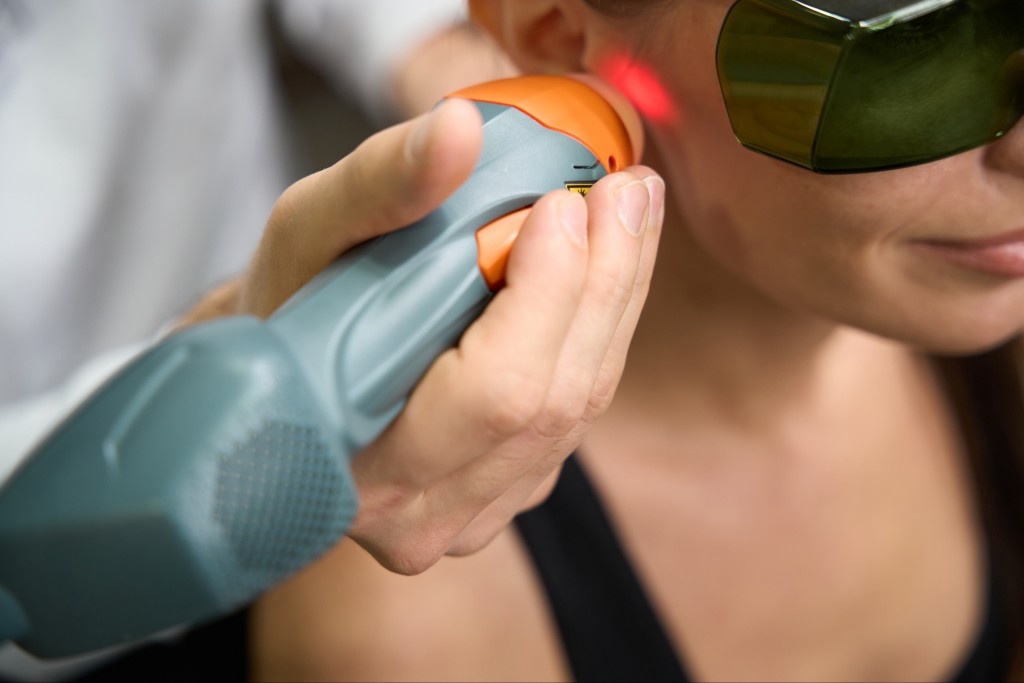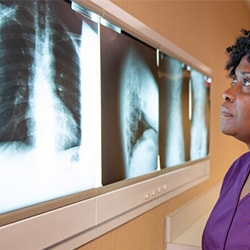 One of the most serious injuries that can occur from a car accident is a head injury. While your seat belt is designed to help prevent you from getting ejected from the vehicle during a serious collision, it cannot prevent you from all types of car accident injuries. In fact, head injuries can occur even when you don’t realize it, and the signs and symptoms can develop gradually in the hours after the accident. A head injury that involves your brain can result in serious issues that should be checked out by a doctor as soon as possible. Even if you experience a slight bump on the head during a car accident, you should always get it checked out by a doctor to rule out serious and potentially long-term consequences. Here’s everything you need to know about car accident head injuries, including their signs and symptoms, treatment options, and expectations for recovery.
One of the most serious injuries that can occur from a car accident is a head injury. While your seat belt is designed to help prevent you from getting ejected from the vehicle during a serious collision, it cannot prevent you from all types of car accident injuries. In fact, head injuries can occur even when you don’t realize it, and the signs and symptoms can develop gradually in the hours after the accident. A head injury that involves your brain can result in serious issues that should be checked out by a doctor as soon as possible. Even if you experience a slight bump on the head during a car accident, you should always get it checked out by a doctor to rule out serious and potentially long-term consequences. Here’s everything you need to know about car accident head injuries, including their signs and symptoms, treatment options, and expectations for recovery.
4 Types of Car Accident Head Injuries
Millions of people get injured in car accidents every year and some of those are head injuries. These are the top 4 types of car accident head injuries.
Concussion
A concussion is a type of traumatic brain injury, or TBI, that occurs when your head is violently shaken or struck. A blow to the head from part of the vehicle or an object inside the vehicle can cause a concussion. The sudden force of impact can also cause your head and upper body to jerk and jostle around, leading to a concussion. The violent shaking or striking of the head can cause the brain to collide with the skull, leading to swelling, bruising, or bleeding on the brain.
Signs & Symptoms
Symptoms of a concussion can include headaches, dizziness, and difficulty thinking. Some people experience nausea or vomiting after a head injury, and this can also be a sign of a concussion. People with a concussion may also experience extreme sensitivity to light and sound. It is also possible to lose consciousness with a head injury like a concussion. Some signs and symptoms of a concussion may be observable by others, including whether or not you lost consciousness, if you experience disorientation, difficulty speaking, or trouble with your memory.
Treatment Options
The treatment options for a concussion will vary depending on the severity of your concussion. You should always seek medical attention immediately if you or a loved one suspects a concussion. Your Atlanta car accident doctors can determine how serious the concussion is and determine the best course of treatment. If you do not require hospitalization, then your car accident doctor may talk to you about other treatment options and home remedies. An important part of concussion treatment is taking a break and resting. You may need to avoid certain activities and take it easy for a few days or more to give your brain the time it needs to heal properly. You may also be able to treat concussion symptoms with aspirin-free medications.
Recovery
The recovery period for a concussion can vary from a few days to weeks or months, depending on the type and severity of your head injury. Your recovery can also depend on the specific symptoms you experience. While you recover from a head injury like a concussion, it’s important to get plenty of sleep and avoid physical or mental exertion. You may also need to limit or avoid screen time and bright lights, which can worsen your symptoms. If a concussion goes untreated or you return to normal activities too soon, it can lead to further issues, including prolonged symptoms, chronic headaches, or an even more serious brain injury.
Contusions
A contusion refers to a bruise that occurs on the brain at the location where the brain struck against the skull. The brain can become bruised or damaged from a blow to the head because of how the car accident caused your brain to shake violently within the skull. Brain contusions range from mild to severe and require medical attention as soon as possible so you can receive the appropriate treatment.
Signs & Symptoms
The most common signs and symptoms of a brain contusion include headaches, dizziness, and confusion. You may also experience memory loss, nausea or vomiting, and possible loss of consciousness. A moderate brain contusion may result in a temporary loss of consciousness, while a severe contusion could cause a loss of consciousness for a longer period of time. Signs and symptoms of a contusion are similar to those of a concussion because these two injuries can often occur together, which is why it is important to get checked out by a car accident doctor to determine the extent of your injuries.
Treatment Options
Treatment options for a brain contusion range from rest and medications to surgery, depending on the severity of the injury. Your unique symptoms and circumstances will also impact the treatment options available to you for treatment for a brain contusion. Most people who suffer a brain contusion will be advised to rest and avoid any physical or mental exertion. Getting plenty of sleep and rest gives your brain a chance to heal and reduce symptoms. Your doctor may also prescribe medications to help manage your symptoms. In severe cases of a brain contusion, you may require surgery to remove any blood clots or to repair damage to the brain.
Recovery
Recovery and rehabilitation after a contusion can range from a few days to months, depending on how the injury impacted your physical, cognitive, and emotional function. Physical therapy after a car accident injury, like a contusion, can help you improve physical functioning like strength and balance. Physical therapy can also stimulate blood flow and improve circulation, which promotes healing in the brain. You may also need occupational therapy and/or speech therapy to help you fully recover from this type of head injury.
Hematomas
A hematoma refers to a collection of blood that occurs outside of a blood vessel. In the head, a hematoma may occur because of a head injury suffered in a car accident. A common phrase for understanding a hematoma is bleeding on the brain. There are several types of hematomas that can occur from a car accident injury depending on the location and severity.
Signs & Symptoms
Symptoms of a hematoma, or bleeding on the brain, include headaches, dizziness, and difficulty speaking or understanding others. You may also experience changes in mental status, or this may be observed by others. Other signs and symptoms of a hematoma from a head injury can include temporary or lengthy loss of consciousness or seizures. Not all people will experience the same symptoms from a head injury, like a hematoma, and some symptoms may develop gradually over time.
Treatment Options
Treatment options for a brain hematoma will depend on the location and severity of the injury. Medications can help manage symptoms such as headaches or nausea. A severe case of hematoma may require surgery to remove the hematoma or repair any damage to the brain. A craniotomy is a type of surgery where a section of the skull is removed to access the brain. Your surgeon may also opt for a more minimally invasive procedure depending on your specific circumstances.
Recovery
After a hematoma, you may need additional support and rehabilitation through the recovery period. Physical therapy can help you regain strength, mobility, and coordination after a head injury. You can also gain the confidence to return to regular activities slowly and safely with physical therapy after a head injury.
Skull Fractures
A skull fracture refers to a break in the bones of the skull. There are several types of skull fractures depending on the type of break and where it is located. For example, a linear skull fracture is a straight, narrow break in the skull bone typically caused by a sudden, direct blow to the head. A depressed skull fracture occurs when the bone gets pushed inward, which can end up affecting or injuring the brain.
Signs & Symptoms
Symptoms of a skull fracture include headaches, dizziness, and disorientation. With some types of skull fractures, you may notice changes in the shape of the head. Confusion, memory loss, and loss of consciousness can also occur with a skull fracture. Changes in mental status, including difficulty speaking or understanding others, can also occur.
Treatment Options
The type and severity of the skull fracture will impact the treatment options available to you. For example, a mild break that does not impact the brain may require rest and medications to help manage your symptoms. However, a more serious skull fracture could require surgery to repair the broken bones of the skull. Surgical procedures to address a skull fracture range from minimally invasive procedures to a craniotomy.
Recovery
Recovery after a skull fracture will also depend on the type and severity of this kind of head injury. If the brain is impacted by the skull fracture, then you may need additional support through the rehabilitation process, including occupational therapy or speech therapy. Physical therapy can also help you improve your strength, mobility, and balance after a head injury.
What to Do If You Suspect a Head Injury after a Car Accident
If you suspect you or someone else has suffered a head injury after a car accident, you should follow these steps to ensure safety and swift medical attention:
Seek Emergency Medical Attention
The most important thing to do if you suspect a head injury is to seek emergency medical attention. Call 911 or your local emergency number and make note of any signs and symptoms either experienced or observed. Wait until paramedics arrive at the scene and do not try to move the person, especially their head, neck, and upper body.
Stay Still Until Help Arrives
If you suffered the injury and someone is nearby, have them make the call and report your symptoms so you can stay still until help arrives. Any movements you make could end up making a serious head injury worse, so it is best to wait for emergency medical professionals to assist you.
Get Accurate Diagnosis
You will need an accurate diagnosis of the specific type and severity of your head injury. Your doctor will likely run diagnostic imaging tests like a CT scan or MRI to get a better look at your head injury and its impact on your brain. They may also run cognitive tests or nerve tests as needed to assess your injury further.
Begin Treatment ASAP
It is important to get started on treatment for a head injury as soon as possible. If you delay treatment for a head injury, you risk serious, even life-threatening consequences. The sooner you get the medical attention you need, the better chance you have of minimizing the risk of complications and improving your chances for a full recovery. Damage to the brain can have a wide range of effects on your physical, cognitive, and emotional functioning.
Follow Doctor’s Orders
 Symptoms of a head injury can take hours or even days to show up after a car accident. Just because you do not notice immediate symptoms doesn’t mean you should skip going to the doctor. You should also follow your treatment plan as prescribed by your doctor to ensure proper healing and recovery. Talk to your doctor if you experience any additional symptoms or changes in your symptoms during the treatment and recovery period. You also want to work with a car accident doctor who you trust and feel comfortable asking questions about your head injury treatment.
Symptoms of a head injury can take hours or even days to show up after a car accident. Just because you do not notice immediate symptoms doesn’t mean you should skip going to the doctor. You should also follow your treatment plan as prescribed by your doctor to ensure proper healing and recovery. Talk to your doctor if you experience any additional symptoms or changes in your symptoms during the treatment and recovery period. You also want to work with a car accident doctor who you trust and feel comfortable asking questions about your head injury treatment.
Visit AICA Orthopedics in Atlanta to get quality, comprehensive treatment for car accident head injuries. With multiple locations across the metro area, Atlanta car accident doctors at AICA Orthopedics work together to get you a proper diagnosis and personalized treatment plan to support your recovery and rehabilitation after a car accident. Our team of doctors includes orthopedic doctors, neurologists, physical therapists, and chiropractors with access to state-of-the-art diagnostic tools like CT scans and MRIs in the office. Enjoy the convenience of full-service treatment at AICA Orthopedics in Atlanta at a location near you.








